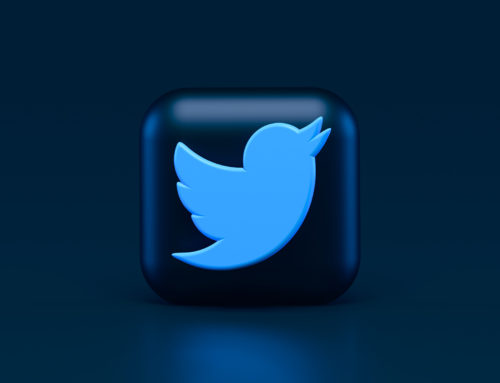If book marketing was easy, then every author on the planet would be successful. Really good book marketing has the power to overcome a lot of author obstacles and can even make the worst authors look amazing. Unfortunately, it takes a lot of work and know-how to create that kind of book marketing. Book marketing is a lot more than formatting your book, getting a cover, and distributing it, despite what a lot of “book marketing” firms will tell you.
Sorry if that bursts your bubble!
Unless you’re willing to put in a lot of time to learn book marketing and consistently work on your book marketing, than it’s unlikely you’ll ever reach the kind of success that all authors long for. There’s really no way around it.
Sure, you could suddenly go viral on TikTok – I’m not saying it couldn’t happen, but the odds are not in your favor.
So what can you do? Well, that’s why I’ve put together this quick Book Marketing 101 guide. While book marketing is something that you should begin months before you release your first book, it’s never too late to do it right.
1. Treat It Like a Business
As a published author, whether self-published or through a book publisher, you have a business. It’s a real business with tax implications and compliance issues. You MUST treat it like a real business.
We’re not going to get into the whole idea of business entities and how to set up a business here. I’m a professional marketing and that is NOT my jam. I do recommend seeking an expert and getting that part right, however.
Having said that, you have to THINK of your author business as if it’s a real business and market it like a real business. Businesses spend BILLIONS of dollars each year to market their companies because they know that’s how to build brands and drive sales. Obviously, most of us don’t have billions of dollars to spend on marketing, but it’s the same mindset.
Book marketing is what builds author brands and book sales… period.
2. Develop Your Brand
I don’t hear a whole lot of book marketers out there talking about branding, but it’s one of the crucial steps you need to take BEFORE you start any of your actual book marketing. So what is a brand? Here’s the marketing answer to that question:
A brand is a product, service or concept that is publicly distinguished from other products, services or concepts so that it can be easily communicated through marketing. Branding is the qualities and personality of your product and business.
David Ogilvy defined a brand as: “the intangible sum of a product’s attributes: its name, packaging, and price, its history, its reputation, and the way it’s advertised.“
As an author, the easiest way to think of your brand is to think of it kind of like a book genre. If you’re a dystopian author, for example, you wouldn’t want all of your book marketing material to have little hearts on it. That would completely confuse new readers (known as prospects in the marketing world) and they’d be expecting something completely different from your books.
It’s kind of like making the cover match your book. You wouldn’t put a romantic looking couple on a non-fiction book about WWII.
Your approach to book marketing has to make your brand as an author match the kinds of books that you write AND your personality as an author. If you write only one genre, than it’s pretty simple to create a brand around that genre. If you write books within several unrelated genres, then your brand is going to be more dependent on your author personality than your genre.
This might not seem all that important when you’re first getting started with your book marketing, but it literally plays into everything you do for your author business.
3. Know Your Ideal Reader
In the rest of the marketing world, we would call this your target market. Your ideal readers are the people that will be most attracted to your story and therefore the most likely people to buy it.
While we’d love for everyone in the whole world to love our books, there are certain people that are only interested in reading certain genres, and even genres within genres. Your job, before you really start your book marketing is to discover who YOUR ideal reader is so that you can develop marketing that will appeal to them and encourage them to purchase your book.
While it’s important to narrow your ideal reader profile as much as possible, don’t go too crazy with it or you’ll narrow it down to only a handful of people.
For example, the ideal reader for your western romance wouldn’t be “all people who love westerns.” It’s way too too broad because it doesn’t target people who actually like to read. Personally, I like the occasional western movie (especially the old Clint Eastwood movies), but I’m not interested in reading a western romance at all.
So how do you nail down your ideal reader?
The best way to do it is to create a buyer persona (yep, another marketing term). This buyer persona will carry all the traits of the person who you feel is most likely to purchase your book. Think of it as a single person… sometimes I even name mine to help me solidify my thoughts. Here are some questions you should ask yourself to nail that down:
- Is your ideal reader male or female?
- What is the age of your ideal reader?
- What kinds of readers like explicit (or non-explicit) material?
- What kinds of themes does your ideal reader like?
- What area of the world does your ideal reader live in?
- What’s their socioeconomic class?
- Are they good with technology or still using a flip phone?
- What kind of interests does your ideal reader pursue?
- What kind of job does your ideal reader have?
I think you get the idea here. It’s important to be as specific as possible here. You will use this information in the formation of your brand, website, and book offers, and you will also use it to create content, social posts, and marketing strategies that will appeal to your ideal reader. Your keywords will even be affected by your ideal reader.
4. Create an Author Website
As an author, your website is home base for everything you do for your business. Potential readers will visit your website to learn more about you and your books, you’ll have links to where people can buy your books (or you can sell directly from your website), readers and fans will be able to find out about any events you have going on, and they can use your website as a way to find out where to connect with you on social media.
Your website is the hub of all things you.
Your website is also the jump off spot for all of your book marketing. Some of your book marketing will take place on your website directly, like writing a blog or creating opportunities for readers to join your email list, while other parts of your book marketing will take place other places and refer readers back to your website.
Having said all that, it’s clear that you must have a website for your author business. Your website is probably the most important asset you have as an author, other than your books, of course.
Why not just send readers to my Amazon page or another website that sells my books?
This is a question that I hear a lot, and there’s one simple answer: control.
You want to maintain control over your business as much as you possibly can. What if Amazon bans you for some reason or their website goes down?
That’s right. You’re screwed.
How are you going to find all the places all over the internet where you’ve linked your book to Amazon and change the links to a different vendor that sells your books?
Short answer… you can’t.
On the other hand, if you always send people to your own website, you can easily change the places your book is sold because it’s all on your own author hub.
Quick Website Tips
5. Build An Email List
Although building an email list can be a lot of work, it’s something that I would encourage every author to do. Essentially, an email list is where visitors come to your website and subscribe to receive more content from you in their inbox.
Once you get a reader to subscribe, you can send them links to content you’ve created on your website (like your blog), social media content, event details, special offers, etc. whenever you like. It’s like having a list of people who are open and receptive to what you have to offer, if you do it right.
There’s a lot of marketing strategy that goes into email marketing, so I’m not going to get into too many details here, other that to day that I highly recommend building an email marketing list for your author business.
6. Develop Your Book Marketing Strategies
Everything we’ve discussed up to this point is basic book marketing. It’s not product marketing (Your book is your product, so this would be formatting your book, creating a cover, distributions, book blurb, etc.), and it’s not book marketing strategy.
All the steps above are the basics of what you’ll need to effectively market your books (products) and your author business.
Once you have all that, then it’s time to get to the fun stuff – book marketing strategies! There are sooo many strategies that you can use to attract readers, and that’s something that I’ll go into more detail as time goes on. I’ve listed several possibilities below:
- Social Media Strategies – MANY strategies are aimed at social media, and each platform requires a slightly different strategy
- Blogging – Highly effective if you write blogs regularly and use good keyword strategies
- Lead magnets – giveaways to encourage visitors to subscribe to your email list
- Paid Ads – this can include everything for social media ads to advertising on publisher lists
- Influencer Marketing – getting influencers to help you promote your brand and books on social media
- Video Marketing – Another strategy that has huge potential. You can use video for your website, social media, and video platforms like Youtube.
- Podcasting – Great strategy if you have the time and can create enough content for it
- Create a Press Kit
- Giveaways and Contests
- Press Releases
- Participate in author and reader communities
- Live events – online or in the real world.
- Cross-promote and network with other authors
- ANYTHING that will get you those coveted reviews!
I highly suggest that you take on only one new strategy at a time. Book marketing is extremely time-consuming, and the only way it really works well is if you do it consistently. Starting a new podcast, for example, will be a complete failure if you don’t commit the time to produce podcasts regularly.
If you commit to too many strategies, then it will definitely cut into your writing time for that next novel!



